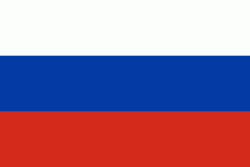Sovetsky (Sovetskiy)
Sovetsky (Сове́тский; Johannes) is an urban locality (an urban-type settlement) in Vyborgsky District of Leningrad Oblast, Russia. It is situated on the eastern shore of the Gulf of Vyborg on the Karelian Isthmus. Population:
Until the Winter War and Continuation War, it had been the administrative center of the Johannes municipality of the Viipuri Province of Finland. The territory had been ceded by Finland to the Soviet Union by the Moscow Peace Treaty as a result of the Winter War. It was recaptured by Finns between 1941 and 1944 during Continuation War but was again ceded to Soviets after Moscow Armistice. This secession was formalized after signing Paris Peace Treaty in 1947. The Viipuri Province was divided, with the larger part ceded to Soviet Union and the smaller part remaining in Finland. The population was resettled to Finland, and population from Central Russia was resettled to populate the Karelian Isthmus.
Vyborgsky District with the administrative center in Vyborg was established in March 1940 as a part of the Karelian Autonomous Soviet Socialist Republic, and Johannes was a part of Vyborgsky District. It was given urban-type settlement status. On March 31, 1940 the Karelian Autonomous Soviet Socialist Republic was transformed into the Karelo-Finnish Soviet Socialist Republic. On November 24, 1944, Vyborgsky District was transferred from Karelo-Finnish Soviet Socialist Republic to Leningrad Oblast.On October 1, 1948 the Finnish names of localities were replaced by Russian names, and, in particular, Johannes was renamed Sovetsky, to commemorate Mikhail Sovetsky, a military pilot and a Hero of the Soviet Union.
Until the Winter War and Continuation War, it had been the administrative center of the Johannes municipality of the Viipuri Province of Finland. The territory had been ceded by Finland to the Soviet Union by the Moscow Peace Treaty as a result of the Winter War. It was recaptured by Finns between 1941 and 1944 during Continuation War but was again ceded to Soviets after Moscow Armistice. This secession was formalized after signing Paris Peace Treaty in 1947. The Viipuri Province was divided, with the larger part ceded to Soviet Union and the smaller part remaining in Finland. The population was resettled to Finland, and population from Central Russia was resettled to populate the Karelian Isthmus.
Vyborgsky District with the administrative center in Vyborg was established in March 1940 as a part of the Karelian Autonomous Soviet Socialist Republic, and Johannes was a part of Vyborgsky District. It was given urban-type settlement status. On March 31, 1940 the Karelian Autonomous Soviet Socialist Republic was transformed into the Karelo-Finnish Soviet Socialist Republic. On November 24, 1944, Vyborgsky District was transferred from Karelo-Finnish Soviet Socialist Republic to Leningrad Oblast.On October 1, 1948 the Finnish names of localities were replaced by Russian names, and, in particular, Johannes was renamed Sovetsky, to commemorate Mikhail Sovetsky, a military pilot and a Hero of the Soviet Union.
Map - Sovetsky (Sovetskiy)
Map
Country - Russia
 |
 |
| Flag of Russia | |
The East Slavs emerged as a recognisable group in Europe between the 3rd and 8th centuries CE. The first East Slavic state, Kievan Rus', arose in the 9th century, and in 988, it adopted Orthodox Christianity from the Byzantine Empire. Rus' ultimately disintegrated, with the Grand Duchy of Moscow growing to become the Tsardom of Russia. By the early 18th century, Russia had vastly expanded through conquest, annexation, and the efforts of Russian explorers, developing into the Russian Empire, which remains the third-largest empire in history. However, with the Russian Revolution in 1917, Russia's monarchic rule was abolished and replaced by the Russian SFSR—the world's first constitutionally socialist state. Following the Russian Civil War, the Russian SFSR established the Soviet Union (with three other Soviet republics), within which it was the largest and principal constituent. At the expense of millions of lives, the Soviet Union underwent rapid industrialization in the 1930s, and later played a decisive role for the Allies of World War II by leading large-scale efforts on the Eastern Front. With the onset of the Cold War, it competed with the United States for global ideological influence; the Soviet era of the 20th century saw some of the most significant Russian technological achievements, including the first human-made satellite and the first human expedition into outer space.
Currency / Language
| ISO | Currency | Symbol | Significant figures |
|---|---|---|---|
| RUB | Russian ruble | ₽ | 2 |
| ISO | Language |
|---|---|
| CE | Chechen language |
| CV | Chuvash language |
| KV | Komi language |
| RU | Russian language |
| TT | Tatar language |















